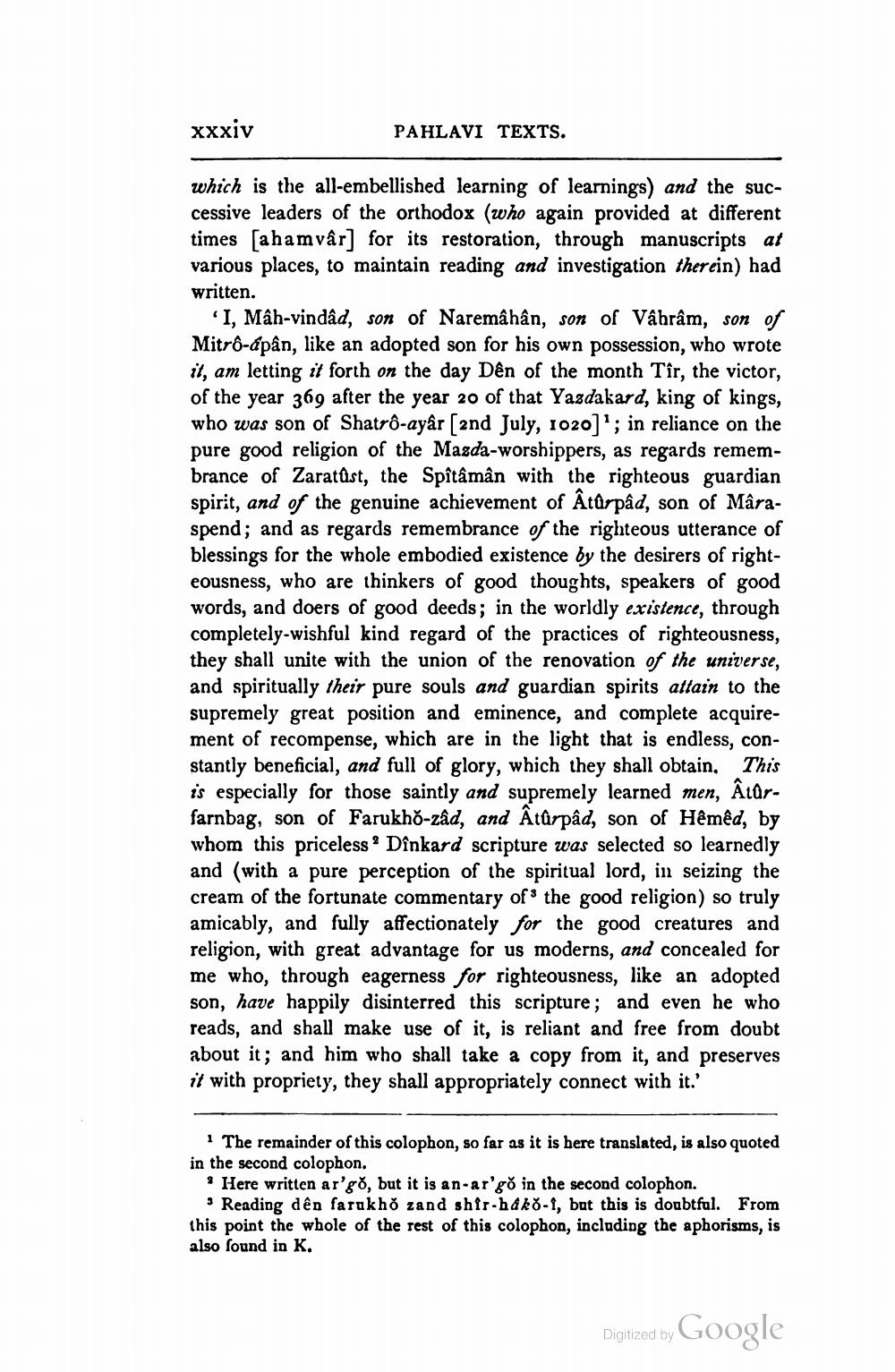________________
xxxiv
PAHLAVI TEXTS.
which is the all-embellished learning of learnings) and the successive leaders of the orthodox (who again provided at different times [a ham vâr] for its restoration, through manuscripts at various places, to maintain reading and investigation therein) had written.
I, Mâh-vindad, son of Naremâhân, son of Váhrâm, son of Mitrô-ápân, like an adopted son for his own possession, who wrote it, am letting it forth on the day Den of the month Tîr, the victor, of the year 369 after the year 20 of that Yasdakard, king of kings, who was son of Shatrô-ayâr (2nd July, 1020]"; in reliance on the pure good religion of the Mazda-worshippers, as regards remembrance of Zaratast, the Spîtâmân with the righteous guardian spirit, and of the genuine achievement of Atürpad, son of Mâraspend; and as regards remembrance of the righteous utterance of blessings for the whole embodied existence by the desirers of righteousness, who are thinkers of good thoughts, speakers of good words, and doers of good deeds; in the worldly existence, through completely-wishful kind regard of the practices of righteousness, they shall unite with the union of the renovation of the universe, and spiritually their pure souls and guardian spirits attain to the supremely great position and eminence, and complete acquirement of recompense, which are in the light that is endless, constantly beneficial, and full of glory, which they shall obtain. This is especially for those saintly and supremely learned men, âlûrfarnbag, son of Farukho-zâd, and Atürpád, son of Hêmêd, by whom this priceless Dînkard scripture was selected so learnedly and (with a pure perception of the spiritual lord, in seizing the cream of the fortunate commentary of the good religion) so truly amicably, and fully affectionately for the good creatures and religion, with great advantage for us moderns, and concealed for me who, through eagerness for righteousness, like an adopted son, have happily disinterred this scripture; and even he who reads, and shall make use of it, is reliant and free from doubt about it; and him who shall take a copy from it, and preserves it with propriety, they shall appropriately connect with it.'
The remainder of this colophon, so far as it is here translated, is also quoted in the second colophon. * Here written ar'go, but it is an-ar'go in the second colophon.
Reading dên farukhổ zand shir-håko-1, but this is doubtful. From this point the whole of the rest of this colophon, including the aphorisms, is also found in K.
Digitized by Google




